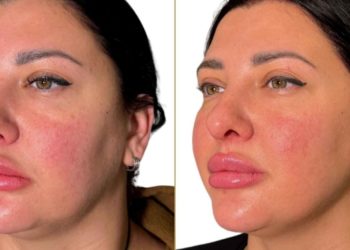Feeling tired and sluggish during the day is common for many women. While fatigue can be caused by an underlying medical condition, there are several lifestyle factors that commonly lead to daytime exhaustion in women. Here are 5 of the most common causes of daytime fatigue in women and tips to help fight it.
Lack of Quality Sleep
Not getting enough sleep or having poor quality sleep is one of the biggest causes of daytime fatigue. Most adults need 7-9 hours of sleep per night; however, many women fail to get adequate shut-eye. Stress, hormonal changes, insomnia, sleep disorders and having young children can all interfere with sleep. Aim to have a regular bedtime routine and limit screen time before bed. Getting quality sleep is essential for avoiding next-day drowsiness.
Poor Diet
What you eat has a direct impact on your energy levels. A diet high in processed foods, refined carbs and unhealthy fats can lead to spikes and crashes in blood sugar. This causes fatigue, brain fog and sluggishness. Eat a balanced diet focused on lean proteins, complex carbs, healthy fats and lots of fruits and vegetables. Stay hydrated, limit caffeine and avoid long gaps without eating. Eating small, frequent meals helps maintain steady energy levels.
For a short-term energy boost, try taking a glucose tablet, such as Lift Glucose Activ Energy Boost.
Stress and Burnout
High stress levels are linked to increased tiredness and exhaustion in women. The constant demands of work, family obligations and life responsibilities can gradually lead to burnout. Chronic stress causes elevated cortisol which can disrupt sleep and metabolism. Make time for relaxation through yoga, meditation, massage or warm baths. Set boundaries and learn to say no to unnecessary commitments. Seek support from friends, family or professionals when needed. Managing stress is key to avoiding burnout and fatigue.
Iron Deficiency
Low iron levels, also known as iron deficiency anaemia, is another common cause of fatigue. Monthly blood loss through menstruation increases the risk of low iron in women. Iron is vital for producing hemoglobin which transports oxygen to tissues. Without adequate iron, you may feel weak, run down and mentally drained. Increase your iron intake through food sources such as red meat, spinach, nuts and fortified cereals. Consider taking an iron supplement if diet alone is not sufficient. Always consult your doctor for blood testing.
Hypothyroidism
An underactive thyroid gland leads to a condition called hypothyroidism which can trigger exhaustion, muscle weakness and sleepiness. Hypothyroidism happens when the thyroid doesn’t produce enough hormones. This slows down metabolism and decreases energy. Get your thyroid levels tested if you have unexplained fatigue along with symptoms like weight gain, dry skin or sensitivity to cold. Hypothyroidism can be managed with medication to replace thyroid hormones. Seeking proper treatment helps normalise energy levels.
A lack of sleep, poor diet, high stress, low iron and thyroid issues are some of the most common reasons women feel fatigued and run down during the day. Making healthy lifestyle changes like getting adequate rest, eating energising foods, managing stress and getting tested for nutritional deficiencies can help combat exhaustion. Consult a doctor if fatigue persists to rule out any medical conditions. With the right modifications, you can help boost energy and regain your zest for life.
David Prior
David Prior is the editor of Today News, responsible for the overall editorial strategy. He is an NCTJ-qualified journalist with over 20 years’ experience, and is also editor of the award-winning hyperlocal news title Altrincham Today. His LinkedIn profile is here.













































































